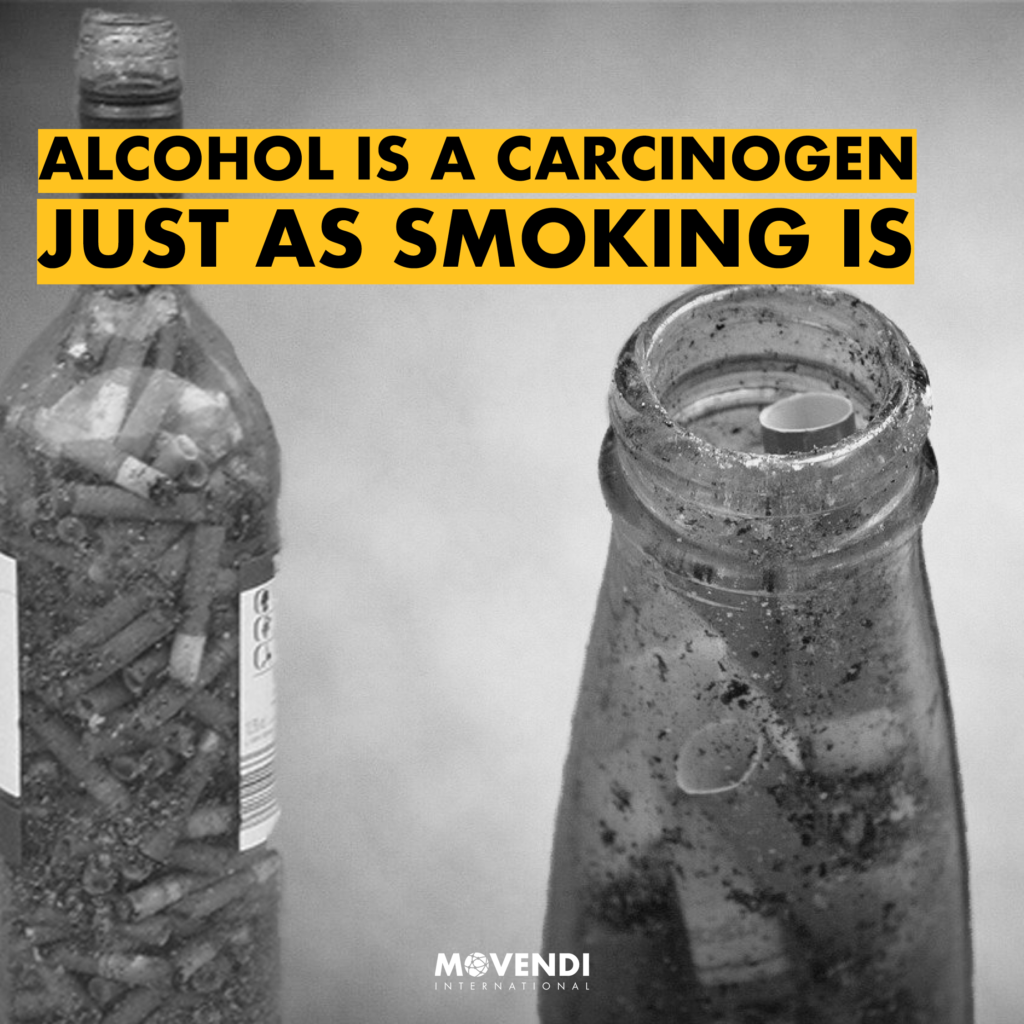Global evidence
Science knows about the correlation of cancer and alcohol use since the 1980s.
The International Agency for Research in Cancer (IARC), the WHO’s research body, classifies alcohol as class one carcinogen since 1988.
The IARC working group writes:
There is sufficient evidence in humans for the carcinogenicity of alcohol consumption.
Alcohol consumption causes cancers of the oral cavity, pharynx, larynx, oesophagus, colorectum, liver (hepatocellular carcinoma) and female breast.”
Personal Habits and Indoor Combustions, IARC Monographs on the Evaluation of Carcinogenic Risks to Humans Volume 100E (2012)
But awareness among decision-makers and the broader public has not caught up with the fact that alcohol is a cause of 7 types of cancer.
Today an extensive body of evidence exists and keeps growing, showing how strong the correlation between alcohol use and cancer risk is.
Today a body of evidence exists and keeps growing, showing how strong the correlation between alcohol use and cancer risk is.
- After tobacco (18%), alcohol is the second biggest cause of cancer – long before other risk factors such as infections (3%), physical inactivity, or sunlight.
Professor Jürgen Rehm says:
The fact that alcohol is a carcinogen has been clearly confirmed.”
Prof. Jürgen Rehm…
The World Cancer Report 2020 showed: In 2016, alcohol consumption was one of the leading risk factors for cancer development and cancer death globally.
- Alcohol caused an estimated 376,200 cancer deaths, representing 4.2% of all cancer deaths worldwide in 2016.
- Alcohol caused 10.3 million cancer disability-adjusted life years lost, representing 4.2% of all cancer disability-adjusted life years lost worldwide in 2016.
- Recent data indicate that the proportion of cancers attributable to alcohol worldwide has increased.
- Alcohol was responsible for the largest proportion of cancer deaths in the European and Americas regions, where 6.2% and 4.6% respectively of all cancer deaths were attributable to alcohol consumption.
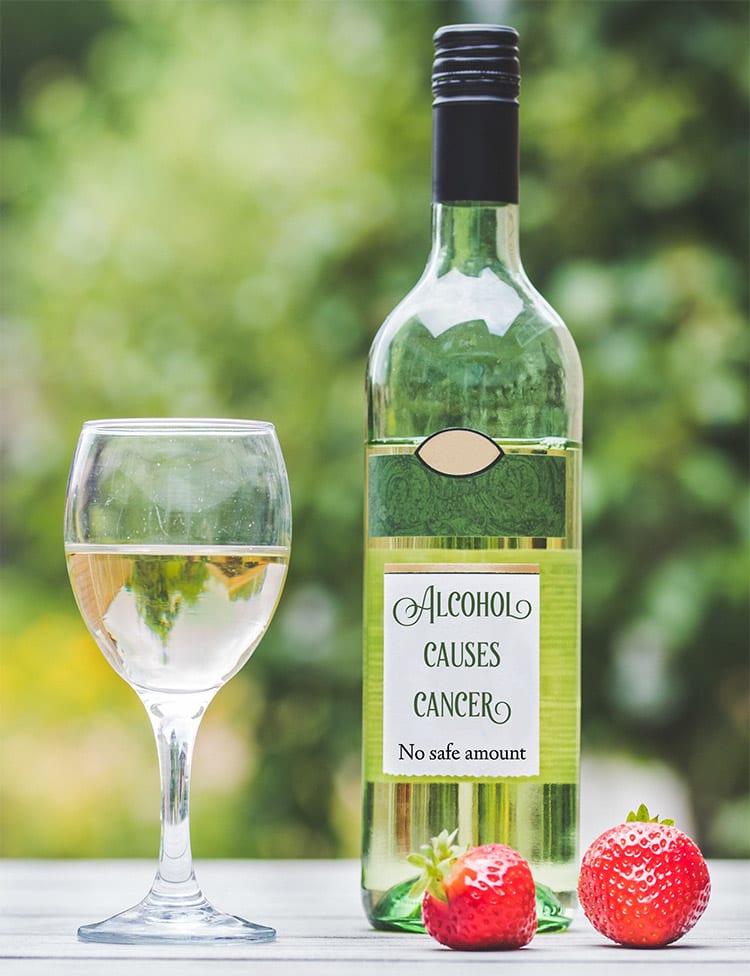
7 Types of Cancer
Alcohol causes 7 types of cancer:
- mouth,
- throat (pharynx),
- food pipe (esophagus),
- voice box (larynx),
- breast (in women),
- bowel (colon and rectum), and
- liver cancer.
Alcohol probably also increases the risk of cancer of the stomach, and might affect the risk of some other cancers as well.
For each of these cancers, the more alcohol a person consumes, the higher is their cancer risk. But for some types of cancer, most notably breast cancer, consuming even small amounts of alcohol can increase risk.
Cancers of the mouth, throat, voice box, and food pipe
Alcohol use clearly raises the risk of these cancers.
Combining alcohol intake and smoking raises the risk of these cancers many times more than alcohol use or smoking on their own. This might be because alcohol can facilitate harmful chemicals in tobacco entering the cells that line the mouth, throat, and food pipe. Alcohol may also limit how these cells can repair damage to their DNA caused by the chemicals in tobacco.
Liver cancer
Long-term alcohol use has been linked to an increased risk of liver cancer.
Regular, heavy alcohol use can damage the liver, leading to inflammation and scarring, also raising the risk of liver cancer.
Bowel (colon and rectal) cancer
Alcohol use has been linked with a higher risk of cancers of the colon and rectum.
The evidence for this is generally stronger in men than in women, but studies have found the link in both sexes.
Breast cancer
Consuming even small amounts of alcohol is linked with an increased risk of breast cancer in women.
Alcohol can raise estrogen levels in the body, which may explain some of the increased risk. Avoiding or cutting back on alcohol may be an important way for women to lower their risk of breast cancer.
No safe or healthy amount of alcohol use
The evidence shows that, in general, the more alcoholic drinks people consume, the higher the risk of many cancers, according to the World Cancer Research Fund International’s Continuous Update Project (CUP).
For some cancers, there is an increased risk with any amount of alcohol consumed, whereas for other cancers the risk becomes apparent from a higher level of consumption.
Alcoholic drinks are a cause of various cancers, irrespective of the type of alcoholic drink consumed. The causal factor is evidently the ethanol itself. The extent to which alcoholic drinks are a cause of various cancers depends on the amount and frequency of alcohol consumed.”
WCRF/ AIRC Continuous Update Project
A large part of the alcohol-related cancer burden originates from light to moderate alcohol consumption, especially among women.
For example, in Germany the two most frequent cancers are breast cancer and colorectal cancer.
- More than 20% of the alcohol-attributable cancer cases in these categories are seen in women who consume less than two drinks a day.
- For men, 8% of all alcohol-attributable colorectal cancer cases fall into these low-dose alcohol use categories.
Lack of awareness globally
A 2018 review of 32 studies examining ordinary people’s awareness of alcohol as a risk factor for cancer in 16 countries showed that awareness appears to be low internationally.
In general, people are more likely to endorse alcohol as a risk factor when presented with a list of possible risk factors than when asked to list risk factors in an open-ended format.
Jennifer K. Scheideler and William M.P. Klein, in: “Awareness of the Link between Alcohol Consumption and Cancer across the World: A Review” (2018)
Attempts to increase awareness have been limited and constitute a significant public health need.
Potential strategies to increase awareness are alcohol bottle labelling and fostering patient/physician discussions regarding the alcohol and cancer.
Alcohol and cancer in the United States
Alcohol use is one of the most important preventable risk factors for cancer, along with tobacco use and excess body weight, according to the American Cancer Society.
- Alcohol use accounts for about 6% of all cancers.
- Alcohol use accounts for ca. 4% of all cancer deaths in the United States.
Yet many people don’t know about the link between alcohol use and cancer.
According to the American Cancer Society Guideline for Diet and Physical Activity for Cancer Prevention, it is best not to consume alcohol. People who choose to use alcohol should limit their intake to no more than 2 alcoholic drinks per day for men and 1 alcoholic drink a day for women. The recommended limit is lower for women because of their smaller body size and because their bodies tend to break down alcohol more slowly

Low risk awareness in the U.S.
According to the American Institute for Cancer Research (AICR) 2019 Cancer Risk Awareness Survey only 45% of respondents recognize that alcohol causes cancer.
Awareness of the link between alcohol and increased cancer risk has risen 6% since AICR last conducted the Cancer Risk Awareness Survey last in 2017. Awareness levels have never exceeded 50% and were at their highest in 2009 (46%).
There is an enormous opportunity to prevent future cancer cases,” says Dr. Nigel Brockton, Vice President of Research at AICR.
Many people believe that pesticides or air pollution are the major factors in cancer risk, but modifiable lifestyle factors play a bigger role. Diet, activity, body weight and alcohol are the largest drivers of cancer risk and are under our control.”
Dr. Nigel Brockton, Vice President of Research, American Institute for Cancer Research
Alcohol and cancer in Europe
Alcohol is responsible for the largest proportion of cancer deaths in the European region, where 6.2% of all cancer deaths are attributable to alcohol consumption, according to the WHO Global Alcohol Status Report 2018. The contribution of alcohol to cancer DALYs was also highest in Europe, where 6.6% of all cancer DALYs are attributable to alcohol consumption.
In the EU in 2016, about 80,000 people died of alcohol-attributable cancer, and about 1.9 million years of life were lost due to premature mortality or due to disability. Alcohol use is one of the main known risk factors for cancer in the EU; in a recent comprehensive study on risk factors for cancer in France, only tobacco smoking was reported to cause higher cancer incidence.
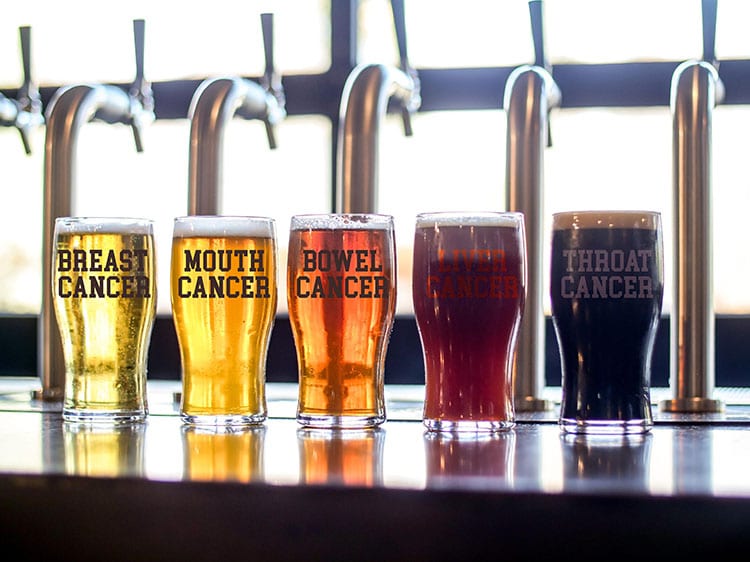
- The AMPHORA project, a research project financed by the European Commission, calculates that 136.000 new cases of cancer in European Union, every year, are caused by alcohol use.
- In the United Kingdom alone, alcohol causes 4% of cancers, around 12,800 cases, yearly.
- The IARC estimates (a study in France, 2011) that alcohol is behind 8% of all cases of cancer: 11% in men and 5% in women
Low risk awareness in Europe
Research in Europe has shown that one in 10 Europeans are not aware of the connection between alcohol and cancer, and that one in five do not believe there is a connection between cancer and alcohol.
A study in the United Kingdom, published by the British Medical Journal in 2016, revealed that, unprompted, only 13% of respondents identified cancer as a potential health outcome of alcohol consumption. Knowledge of the link between alcohol and specific cancers ranged from 18% for breast cancer to 80% for liver cancer, demonstrating a lack of knowledge in the general population. And yet, cancer accounts for 12% of all alcohol-attributable deaths in the Region.
There is an urgent need to inform the general population about the alcohol-cancer link.”
Jürgen Rehm, Kevin Shield, in “Alcohol Use and Cancer in the European Union” (2020)
European Cancer Code
The fourth edition of the European Code Against Cancer (ECAC) was published in October 2014.
12 ways to prevent and reduce cancer risk
The European Code Against Cancer (ECAC) is an initiative of the European Commission, developed by the World Health Organization’s International Agency for Research on Cancer (IARC). The ECAC aims to inform people about actions they can take for themselves or their families to prevent and reduce their risk of cancer. Leading cancer scientists from across Europe compiled the ECAC based on the latest scientific evidence on cancer prevention, coming up with twelve recommendations that most people can follow without any special skills or advice. It has been estimated that almost half of all deaths due to cancer in Europe could be avoided if everyone followed the recommendations.
- Do not smoke. Do not use any form of tobacco.
- Make your home smoke free. Support smoke-free policies in your workplace.
- Take action to be a healthy body weight.
- Be physically active in everyday life. Limit the time you spend sitting.
- Have a healthy diet: Eat plenty of whole grains, pulses, vegetables and fruits. Limit high-calorie foods (foods high in sugar or fat) and avoid sugary drinks. Avoid processed meat; limit red meat and foods high in salt.
- If you drink alcohol of any type, limit your intake. Not drinking alcohol is better for cancer prevention.
- Avoid too much sun, especially for children. Use sun protection. Do not use sunbeds.
- In the workplace, protect yourself against cancer-causing substances by following health and safety instructions.
- Find out if you are exposed to radiation from naturally high radon levels in your home. Take action to reduce high radon levels.
- Ensure your children take part in vaccination programmes for: Hepatitis B (for newborns), Human papillomavirus (HPV) (for girls).
- For women: Breastfeeding reduces the mother’s cancer risk. If you can, breastfeed your baby. Hormone replacement therapy (HRT) increases the risk of certain cancers. Limit use of HRT.
- Take part in organised cancer screening programmes for: Bowel cancer (men and women), Breast cancer (women), Cervical cancer (women)
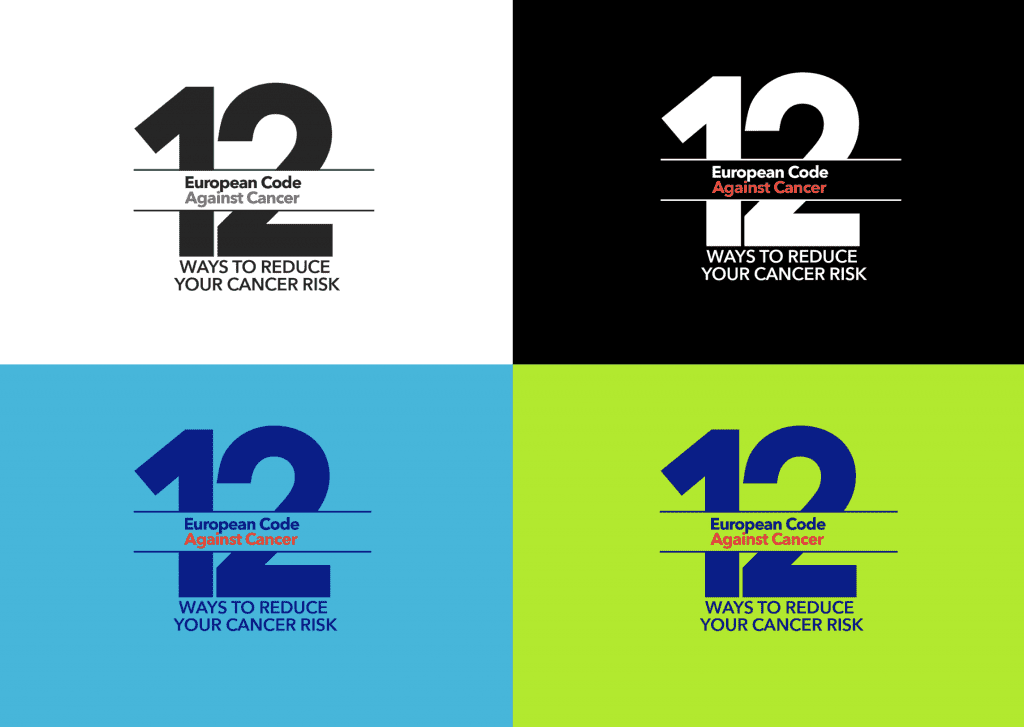
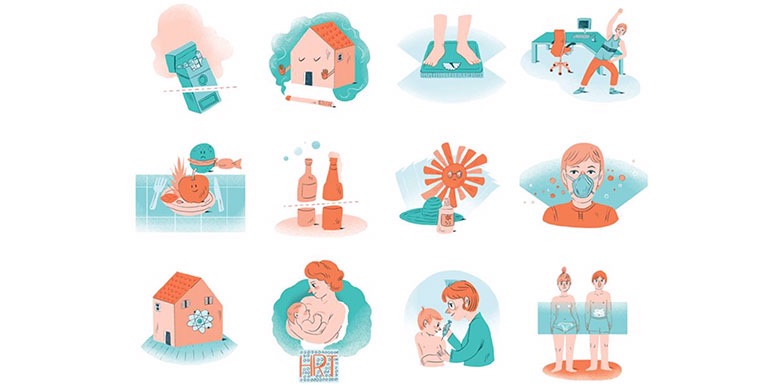
Alcohol policy solutions for cancer prevention
As a consequence of the fact that a large part of the alcohol-related cancer burden originates from light to moderate alcohol consumption, a population preventive strategy is best aimed at reducing the alcohol-attributable cancer burden.
The fact is also that alcohol-attributable cancer is largely preventable – through evidence-based, cost-effective, and high-impact alcohol policy solutions.
Reduced alcohol use, reduced cancer risks
The dose–effect relationship between alcohol and cancer is clear: the higher the alcohol consumption, the higher the risk of cancer.
For example, a woman increases her risk of breast cancer by 50% when consuming four glasses of wine per day and by 130% when consuming eight glasses per day. There is no identified lower threshold, meaning that even small amounts of alcohol increase the risk of cancer.
However, the dose–effect relationship also holds true in reverse: any reduction in alcohol consumption reduces the risk of developing alcohol-linked cancer.
Turning the tide on alcohol-fuelled cancer
Alcohol-related cancer deaths are a global public health crisis. For breast cancer globally, alcohol is the single biggest risk factor. In total, alcohol-related cancer causes 650,000 deaths every year.
Evidence shows that informing people, increasing awareness and understanding of alcohol’s cancer risks leads to bigger support for alcohol prevention and control measures. This in turn leads to significant reductions in cancer mortality.
We calculated the cancer deaths averted from improved alcohol policy through a 10% and a 30% total per capita alcohol consumption reduction scenario.
- Assuming 649,840 alcohol-related cancer deaths in 2017, a 10% reduction of total alcohol use would lead to 9% fewer alcohol-related cancer deaths, meaning 57,300 fewer deaths.
- With a 30% lower total alcohol consumption, calculations show that 26% of alcohol-related cancer deaths could be averted, meaning 171,460 fewer deaths.
The three best buys of alcohol policy
Effective measures and policies exist to prevent and reduce alcohol-related cancer.
Three of the most cost-effective policy areas (the “best-buys”) are:
- increasing price via taxation,
- regulating availability of retail alcohol, and
- imposing a ban (or comprehensive restrictions) on alcohol advertising, sponsorship and promotions.
Another important policy option, relevant in terms of reinforcing the health system response, is the implementation of brief intervention programmes in primary care settings for individuals with heavy and high-risk alcohol consumption. Screening and brief interventions (SBIs), as they are known, for alcohol are an evidence-informed approach to addressing the needs of the many patients presenting in primary care who may benefit from reducing or quitting their alcohol consumption.
Social media assets
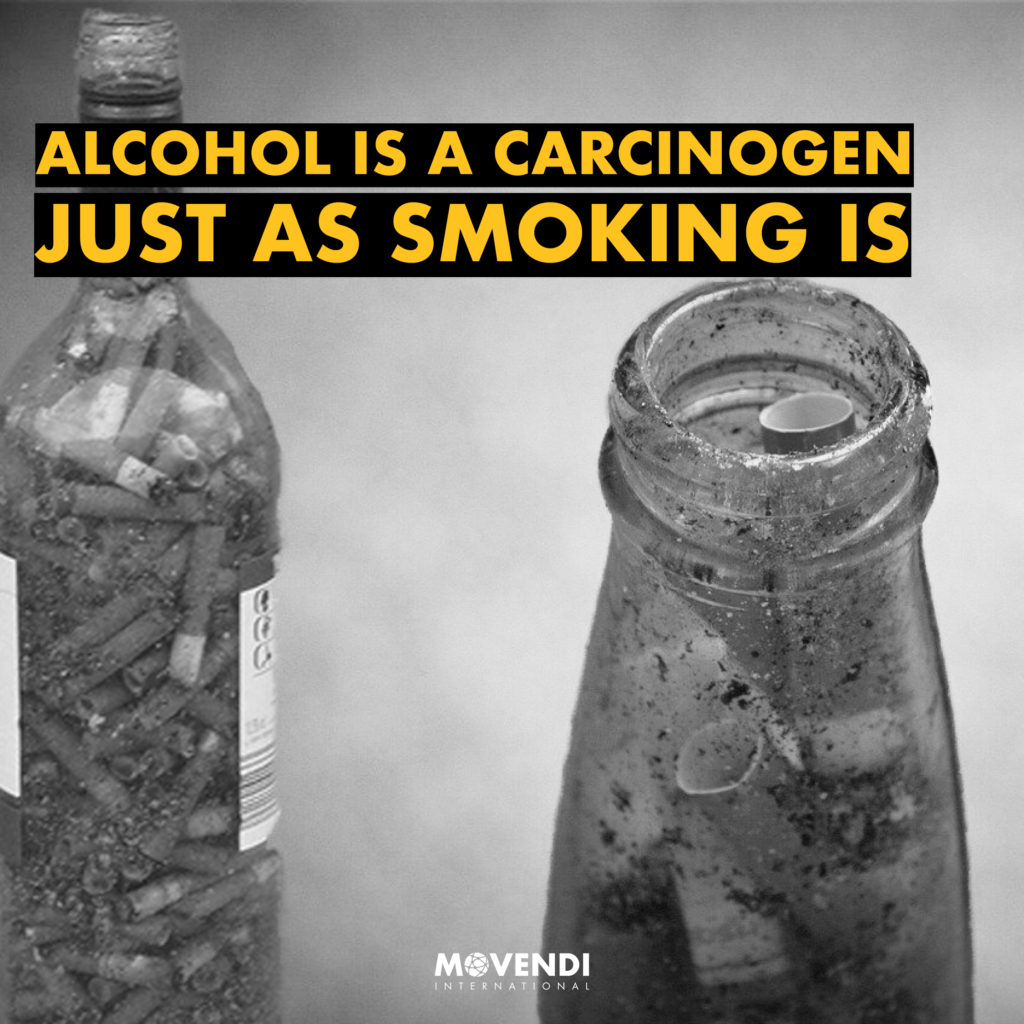
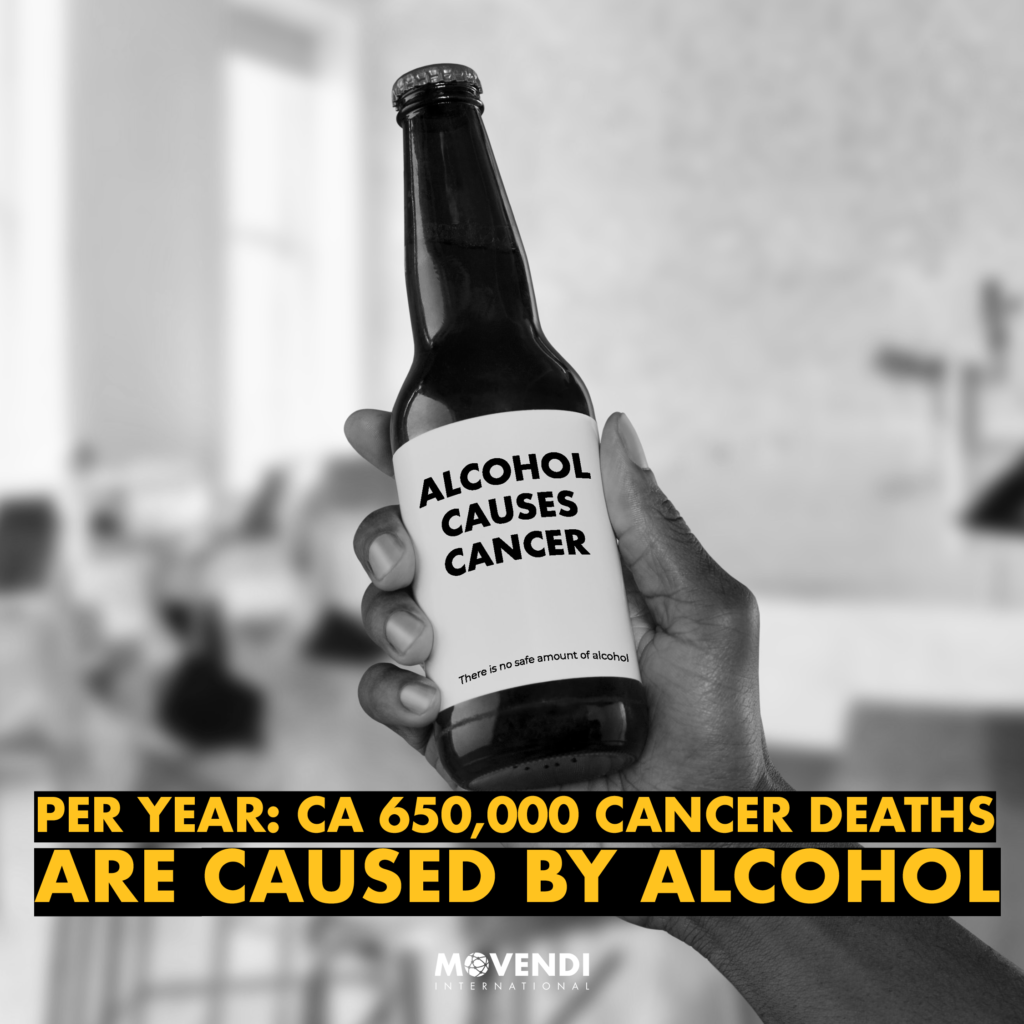
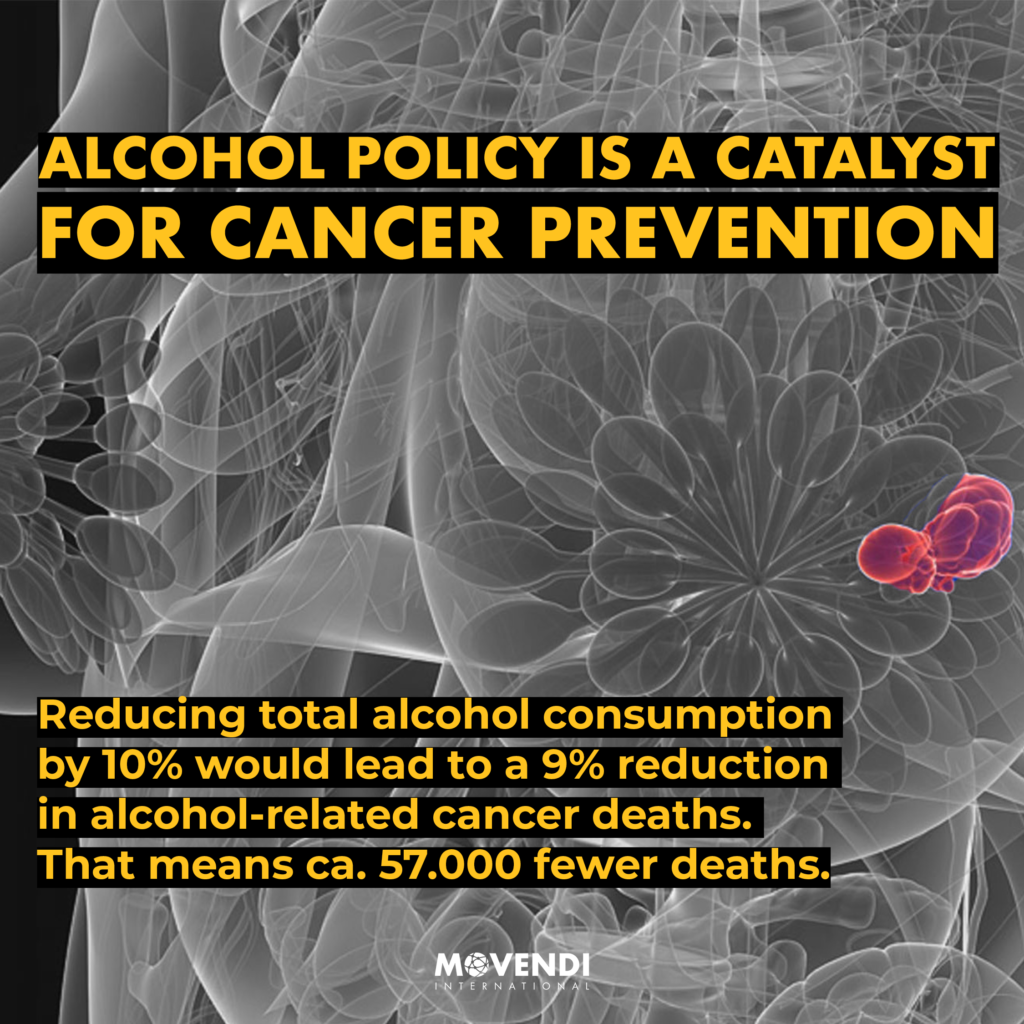
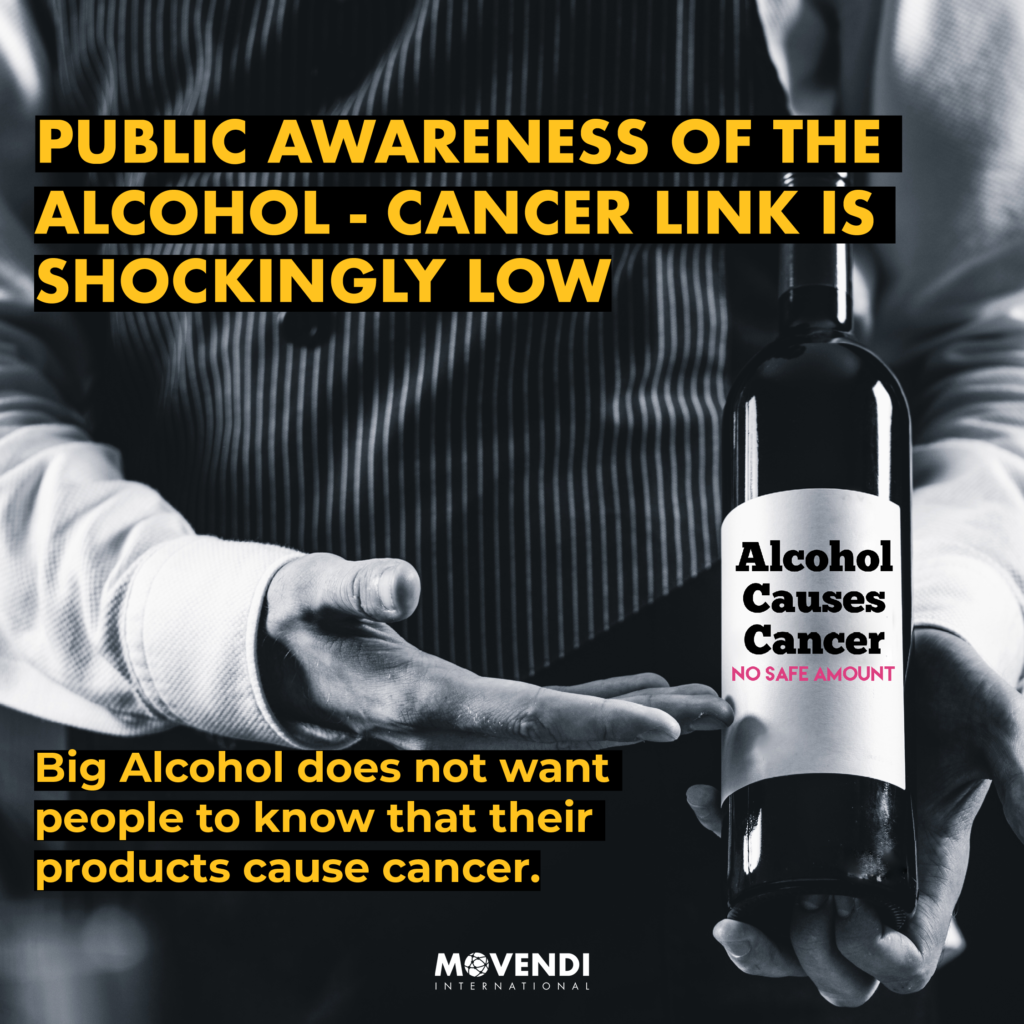
World Cancer Day
World Cancer Day – a global event – is marked on February 4, every year, to raise awareness of cancer and to encourage its prevention, detection, and treatment. World Cancer Day was founded by the Union for International Cancer Control (UICC) to support the goals of the World Cancer Declaration, written in 2008. The primary goal of the World Cancer Day is to significantly reduce illness and death caused by cancer by 2020.
There are multiple initiatives run on World Cancer Day to promote prevention, raise awareness and show support for those affected by cancer.
Scientific sources
- IARC Monograph Volume 96: “ALCOHOL CONSUMPTION AND ETHYL CARBAMATE”
- IARC Monographs – 100 E: “CONSUMPTION OF ALCOHOLIC BEVERAGES”Consumption of alcoholic beverages was considered by previous IARC Working Groups in 1987 and 2007 (IARC, 1988, 2010). Since that time, new data have become available, these have been incorporated into the Monograph, and taken into consideration in the present evaluation.
- IARC Cancer Site by site
- Praud, Rehm, Zatonski et. al.: “Cancer incidence and mortality attributable to alcohol consumption” (2015)
- Jürgen Rehm, Ph.D. and Kevin D. Shield, MH.Sc.: “Alcohol and Mortality: Global Alcohol-Attributable Deaths From Cancer, Liver Cirrhosis, and Injury in 2010”
- Cao Y, Willett WC, Rimm EB, Stampfer MJ, Giovannucci EL.,: “Light to moderate intake of alcohol, drinking patterns, and risk of cancer: results from two prospective US cohort studies.” BMJ. 2015;351:h4238.
- Nelson et. al., in: Am J Public Health. 2013 April; 103(4): “Alcohol-Attributable Cancer Deaths and Years of Potential Life Lost in the United States“
- EPIC Study: Schütze M et al. “Alcohol attributable burden of incidence of cancer in eight European countries based on results from prospective cohort study.” BMJ. 2011 Apr 7;342:d1584. PMID: 21474525
- British Medical Journal (BMJ): “Alcohol attributable burden of incidence of cancer in eight European countries based on results from prospective cohort study”
- World Bank. Policy Measures: The Growing Danger of Non-Communicable Diseases. Acting Now to Reverse Course
- World Economic Forum (WEF) and Harvard School of Public Health: The Global Economic Burden of Non-communicable Diseases
- World Cancer Report: Cancer Research for Cancer Prevention, World Cancer Reports, edited by Wild CP, Weiderpass E, Stewart BW, 2020
- International Agency for Research on Cancer] [Author] [Year of publication] [Title of Material] [Page number (for publications)] [Location on IARC website] [Date accessed and/or downloaded]
- Global status report on alcohol and health 2018. Geneva: World Health Organization; 2018. Licence: CC BY-NC-SA 3.0 IGO.
- World Cancer Research Fund/American Institute for Cancer Research. Continuous Update Project Expert Report 2018. Alcoholic drinks and the risk of cancer. Available at dietandcancerreport.org
- Alcohol Use and Cancer, American Cancer Society, 2020
- Cancer Risk Awareness Survey 2019, American Institute for Cancer Research (AICR)
- Gulland Anne. People lack awareness of link between alcohol and cancer, survey finds BMJ 2016; 353 :i1881
- Schütze M et al. Alcohol attributable burden of incidence of cancer in eight European countries based on results from prospective cohort study. BMJ. 2011 Apr 7;342:d1584. PMID: 21474525
- Bates, S., Holmes, J., Gavens, L. et al. Awareness of alcohol as a risk factor for cancer is associated with public support for alcohol policies. BMC Public Health 18, 688 (2018). https://doi.org/10.1186/s12889-018-5581-8
- Kara P. Wiseman and William M.P. Klein, Evaluating Correlates of Awareness of the Association between Drinking Too Much Alcohol and Cancer Risk in the United States, in: Cancer Epidemiol Biomarkers Prev July 1 2019 (28) (7) 1195-1201; DOI:10.1158/1055-9965.EPI-18-1010
